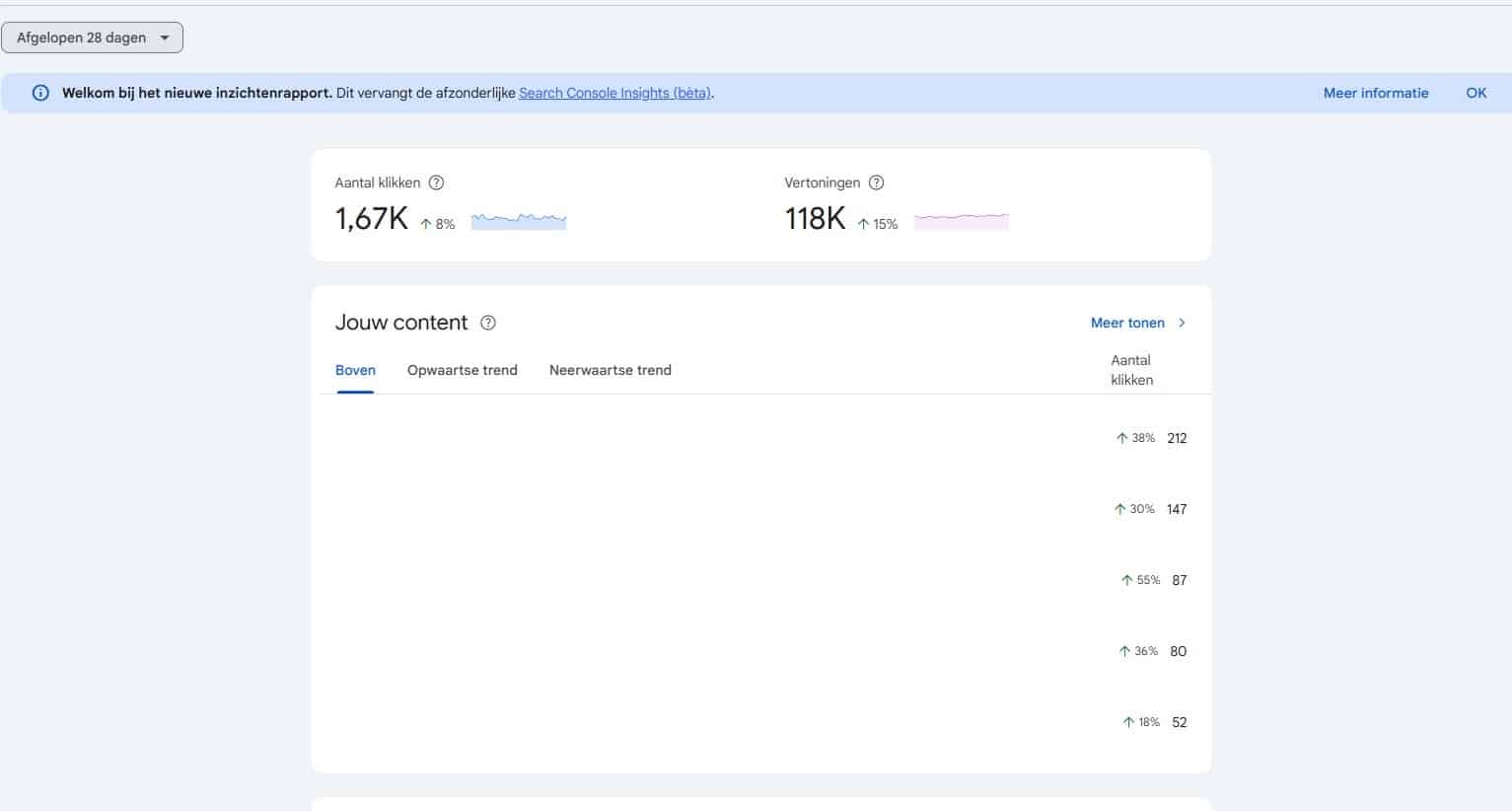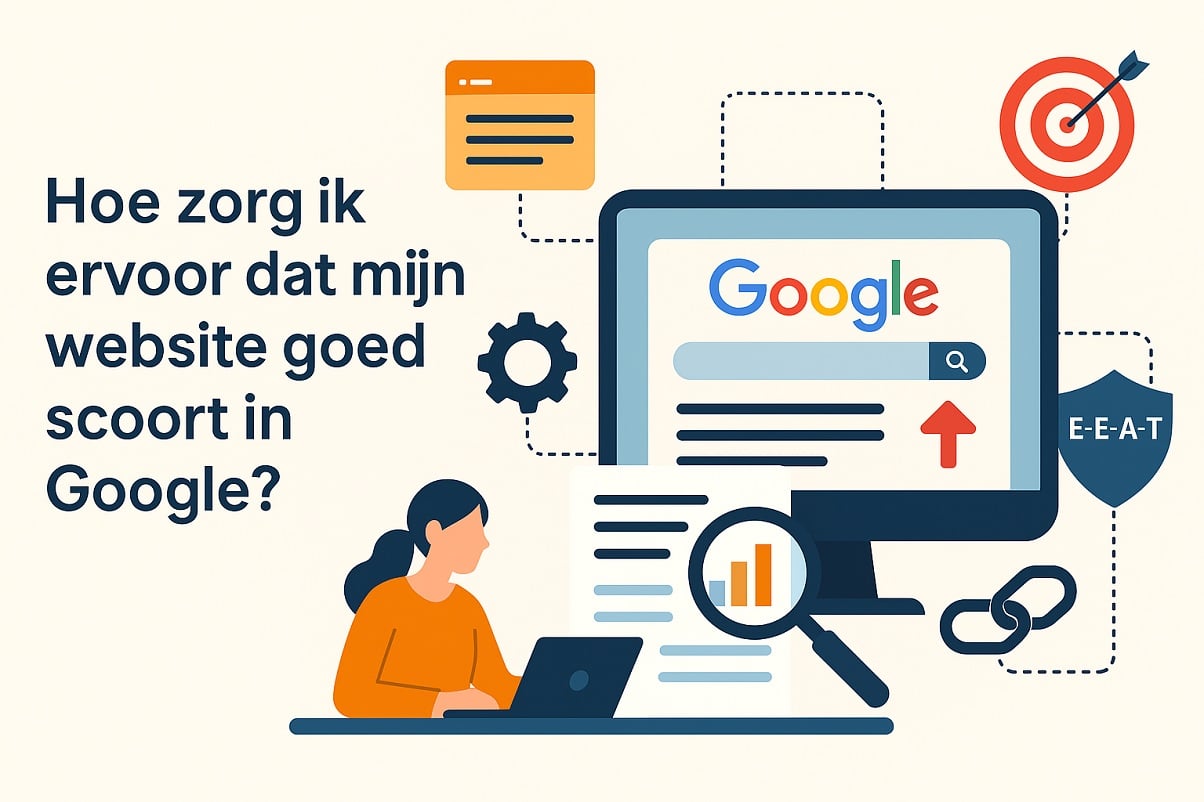How can I ensure that my website ranks well on Google?
Google continues to be an incredibly important source of traffic for many websites, whether it's a hobby blog or a website for a business. In this blog post, we want to take a look at what to consider and how you can create an action plan to increase Google traffic.
The content of a website comes first
The content of your website is an important point to consider. The content of a website determines where the website can be found and where you rank for certain search queries. The more content, the greater the chances of being found for certain search terms. This is why not only hobby websites, but also large companies and businesses have a blog. A blog is a way to be found for more specific search terms while supporting the broader search terms you want to be found for.
For example, you run an ice skating store in Drachten and naturally want to be found for "ice skating store in Drachten". To achieve this, you need to write content about it and ensure that you can be found under this term. But you can also use content that fits naturally with it, such as "best ice skating rinks in Drachten", "ice skating routes in Drachten", "ice skating advice in Drachten", etc. All these terms not only support the specific search term, but also contribute to your brand awareness and the indirect traffic that lands on your website as a result. And hopefully end up buying something in your (web) store.
Content can not only be in written form, but also outside your own website. You can publish catchy videos with your latest tips or products in a video on YouTube or take part in a podcast in your industry. There you can pass on your expertise and make yourself known.
Content marketing can be an effective and, above all, passive means of attracting visitors to your website. And can work for you around the clock to inform, convince or inspire visitors.
Consider the technical aspects
It's not enough to simply publish good content to rank better on Google, you also need to make sure your website is technically sound. A content management system and a reliable host will take a lot of this work off your hands. But you also need to check this yourself.
For example, run a Google Pagespeeds test and link your website to the Google Search Console. These two tools will give you insights from the lion's den and allow you to make the necessary adjustments to ensure your website is ahead of the game.

Internal links and landing pages
Internal links within your website can also give your content more clout, provided you add relevant content links. This invites the visitor to continue reading or to view a product, for example. The aim behind this is often to keep the visitor on your website for longer, which can be a good indication to Google that your website is the right source of information.
If a visitor leaves a website after a few seconds, this can be an indication to Google that the question has not been answered and can therefore lead to your website being ranked lower in the search results.
Specific landing pages for products or services can be linked internally in relevant content and thus be found more easily. This can be from blogs, external sources or other pages on your website. The landing page is then designed to convert. Or to convert the visitor into a paying customer.
External links to your website
External links or backlinks will still be an important value in 2025. However, this should be handled with care as a link from an irrelevant source or a link that you have paid for can be seen as a 'blackhat' method of artificially pushing your website up the search results. An issue that Google has been able to penalize heavily for several years now.
EEAT
Stands for Experience, Expertise, Authoritativeness and Trustworthiness and are values that Google takes into account when ranking your website. Google wants to see that you are competent to write about the topic and therefore have experience in it.
Expertise refers to your knowledge and skills on a particular topic. By providing in-depth and valuable content, you show Google and your visitors that you know what you are talking about.
Experience means that you are not only theoretically educated, but also have practical experience in the topic you are writing about. Think of a medical professional giving advice on health or an amateur chef sharing recipes based on years of experience in the kitchen.
Authority is seen as the trust that others - such as users, other websites or experts - have in you or your brand in a particular field. This can be evidenced by recommendations, mentions on other websites or a strong link profile, for example.
Trustworthiness is perhaps the most important aspect. This is about the security and credibility of your website. Think of a secure connection (HTTPS), clear source citations, transparency about who is behind the website and clear contact information.
Together, these four pillars form the basis of quality content that Google values - and therefore ranks higher in search results.
So consider the above tips and rules to ensure that your website can rank higher in Google. Also take a look at our previous blog posts for more tips and more specific questions. We have over 800 blogs ready for you to help and inform you to get the most out of your website!
